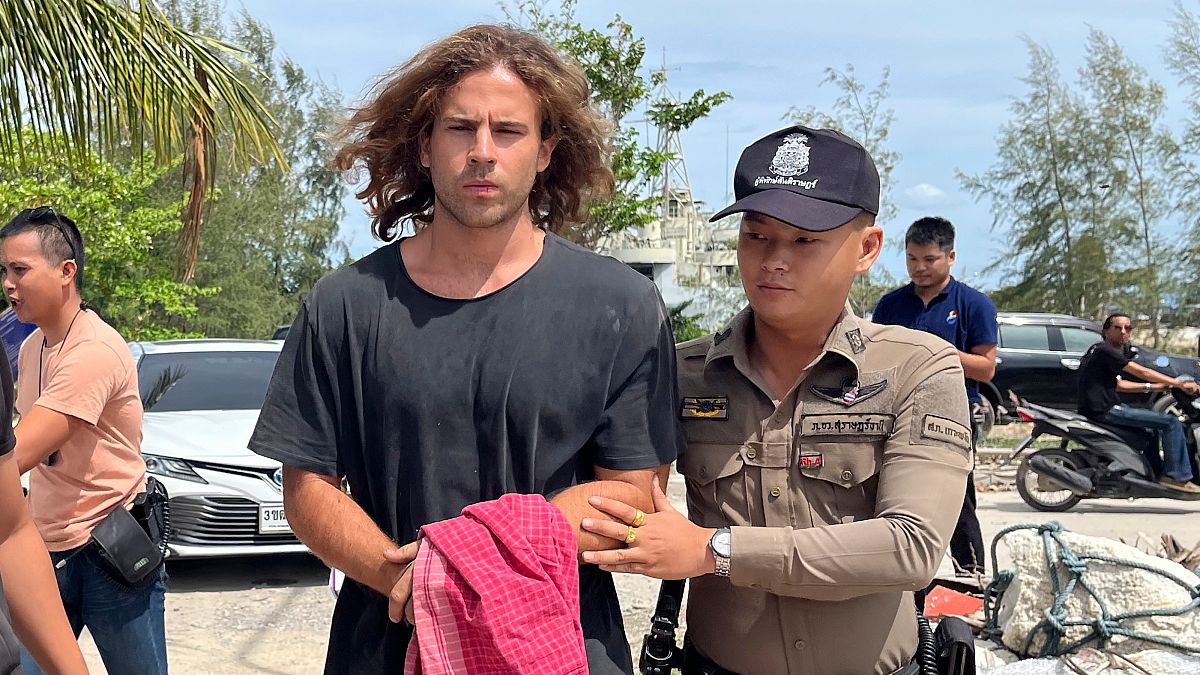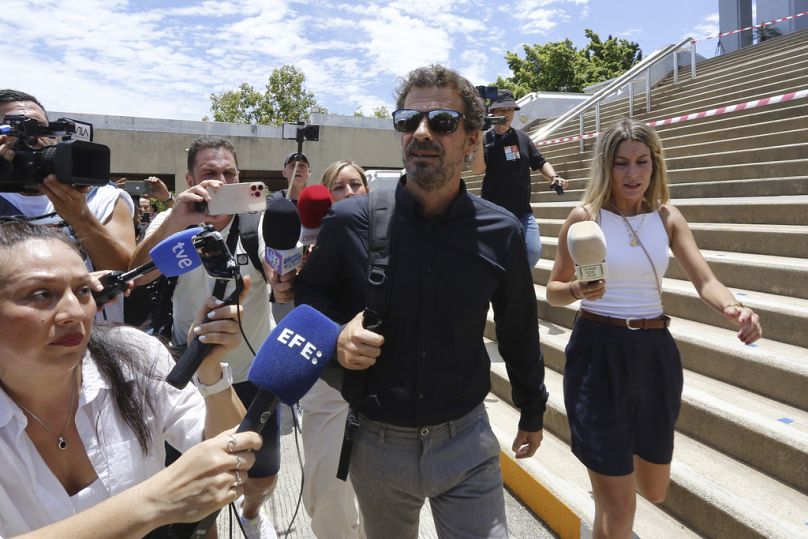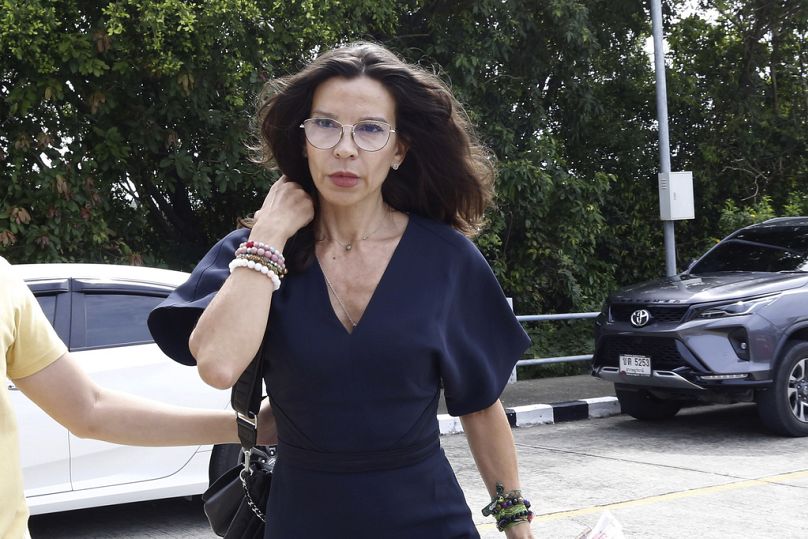
A court in Thailand on Thursday found Daniel Sancho Bronchalo, a member of a famous Spanish acting family, guilty of premeditated murder and sentenced him to life in prison, bringing an end to a lurid case that involved a dismembered victim.
Sancho, a 30-year-old chef with a YouTube channel, was convicted of the murder of Edwin Arrieta Arteaga, a 44-year-old plastic surgeon from Colombia, when both men were vacationing on the Thai holiday island of Koh Pha-ngan in August last year.
The island is famous for its monthly “Full Moon” beach parties, attracting travellers from around the world for all-night raves.
The case came to light when waste collectors found what the Bangkok Post newspaper described as a sawed-off pelvis and intestines weighing about 5 kilograms in a fertiliser sack at a garbage dump.
Shortly after that, Sancho reported to police that Arrieta was missing, and police then gathered evidence linking the two men. He was arrested by Thai police a few days after the murder and subsequently confessed to his involvement.

The police claim that Sancho confessed to the murder itself, and that he planned it after Arrieta threatened to disgrace him and his family by revealing their alleged sexual relationship.
Sancho, through his father and his lawyers, said that was a distorted version of what he told police, and denied having a sexual relationship with Arrieta.
Police obtained surveillance video showing Sancho allegedly purchasing a knife, rubber gloves, garbage bags and cleaning solutions at a convenience store before Arrieta’s death, which prosecutors claimed bolstered the charge of premeditated murder.
The trial, which ran in April and May this year, was held behind closed doors, with limited information was disclosed to the media.
Because of the seriousness of the crime and the likelihood of a harsh sentence, the case was overseen by a panel of five judges in the Provincial Court of Koh Samui in southern Thailand.
During the course of the trial, Sancho’s defence focused on ruling out premeditation in the crime. Its argument was that Arrieta’s death was accidental, and that the only criminal offences committed were the concealment and dismemberment of his body.
The prosecution, meanwhile, maintained from the beginning of the trial that Sancho murdered Arrieta with premeditation. According to their argument, Sancho arranged his meeting with Arrieta so he could end the life Colombian doctor’s life.
Trial proceedings and key testimonies
Among the 25 witnesses who appeared for the defence were police officers, a psychologist, and a saw expert, whose statements sought to support the theory of an accidental death.
Sancho’s own testimony, meanwhile, lasted two full days. In his closing statement, Sancho told the court he regretted his actions, the Spanish newspaper El País reported.
“I am sorry that a life has been lost and that parents have lost a son,” Sancho said. “I am sorry that his family was not able to bury him properly. I’m sorry for what I did after the death.”
While the defence had hoped for a custodial sentence of no more than eight years, the court opted for life imprisonment — though it ruled out the death penalty, which Thai law reserves for extremely serious cases.
The court also awarded a payment of €119,000 to Arrieta’s family.
During the reading of the verdict, Sancho was accompanied by his parents, Rodolfo Sancho and Silvia Bronchalo, both actors, who have maintained a discreet but constant profile throughout the trial.

While the defence had hoped for a custodial sentence of no more than eight years, the court opted for life imprisonment — though it ruled out the death penalty, which Thai law reserves for extremely serious cases.
The court also awarded a payment of €119,000 to Arrieta’s family.
The verdict has generated intense debate in Spain on the nature of international justice and the consequences of crimes committed abroad. It has also highlighted the complexities of the Thai judicial system and the differences between the legal frameworks of different countries.
Sancho’s legal team will now have to decide on their next move — including whether or not to appeal the sentence.





